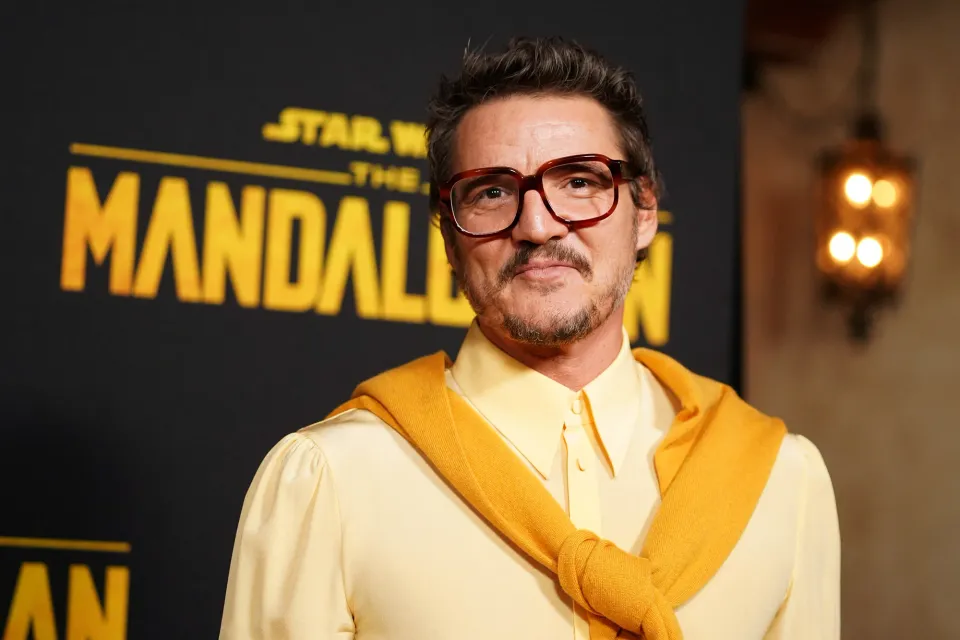I Have Some Questions About the Whole Daddy Thing

As I was making my way through the early Bonds (I'm in the 80s now!) and watching Roger Moore get older and older, something occurred to me. No doubt that even as the producers were worried about Moore's age, it was still considered appropriate and reasonable to have ingenue's throwing themselves at him. I think in the modern day, they would have gotten a lot more mileage out of the whole daddy thing (though that would have been favoring female desire over male bravado). It all got me thinking about how progressive the whole trend really is. Is this a movement that finally gives guys a break for aging (which has...historically never been a problem?) or is it conservative values redressed for a new generation? I don't propose to have a clear or clean answer but it's worth exploring.
My first thought is that this is all a way for millennial fans to deal with watching their favorite male stars age. When you're fifteen it's likely that your first "adult" crush is in their twenties or thirties. When you're thirty, those guys are middle aged with families. Therefore, in order to adapt, you must sexualize that old man. It's actually hot that the beard has a little bit of salt and pepper.


While there are certainly younger fans of these actors, it makes sense that a lot of the actors we call daddy now are of an age where 15 years ago they would be our TV boyfriends (they are still my TV boyfriends.)
There's another aspect in which we are pushing back against the perfect hairless superhero with a six pack. The physique of the heroes in Marvel films is notoriously difficult to accomplish (https://www.businessinsider.com/chris-hemsworth-shirtless-scene-dehyrdation-routine-trainer-2022-3) and entirely based on what looks good 'on screen,' not an actually healthy body. Body standards for women have always been unnecessarily critical and ridiculous, and we shouldn't pretend that every Hollywood star in history has not put significant work into how they look, but jacked action star has become the standard screen presence. Instead of moving women away from the Barbie image, we're pushing men into becoming Kens. The celebration of dad bod is a form of relief. You can look like you eat three meals a day and still be attractive.
Except, we already have decades of the age gap double standard. The history of young women marrying older men would take for whatever reason would take forever to unravel, but it's safe to say that even up until the 60s, dating an older man with money was one of the only ways a woman could have security - so you had to sexualize that old man, waiting for him to die was how to survive. In general, that women should find men at any age attractive is culturally expected while not a single one of them dare look over the age of 22.
looking this up is how I discovered Ari did a cover
Side Note: "Always True To You In My Fashion" (1948) was essentially Cole Porter rewriting himself after "My Heart Belongs to Daddy" (1938) except less infantilizing.
'Daddy' has drifted over from gay culture, where the expectations around male performances of fatherhood are re-contextualized into queer relationships. And in the case of shows and fandoms like Interview With the Vampire (Armand/Daniel), or X-Men (Magento/Xavier) fucking that old man or old man yaoi IS the queer overtone. But by mixing queerness with fandom (a time-honored and near sacred activity), it causes a fridge logic moment when you realize what's happening on a wider scale. Oh wait...young(er) vulnerable communities are lusting over a much more secure and powerful class and that's supposed to be...hot?
I am not certainly not immune to this phenomenon (see: James McAvoy, Oscar Isaac) nor do I think it's inherently harmful. It's just...something worth wrestling with. If we see this movement with men, why not women? Why must 'mothers' always be serving and queen-like? Like so many other things, have we taken an older, damaging idea and just remolded it into something palatable to modern ears? How will we know?
The Fanthropologist is a weekly newsletter by Lena Barkin. Friday discussion posts are exclusive to paid subscribers. If you'd like to support the newsletter; tell your friends, consider leaving a tip, or sign up for a free subscription.
Member discussion